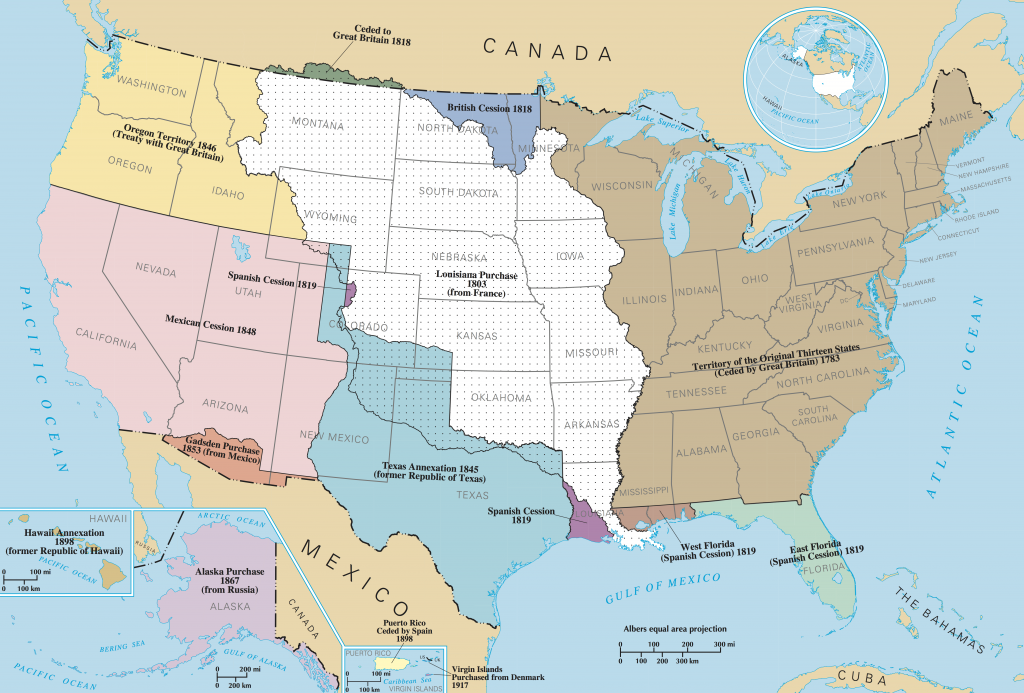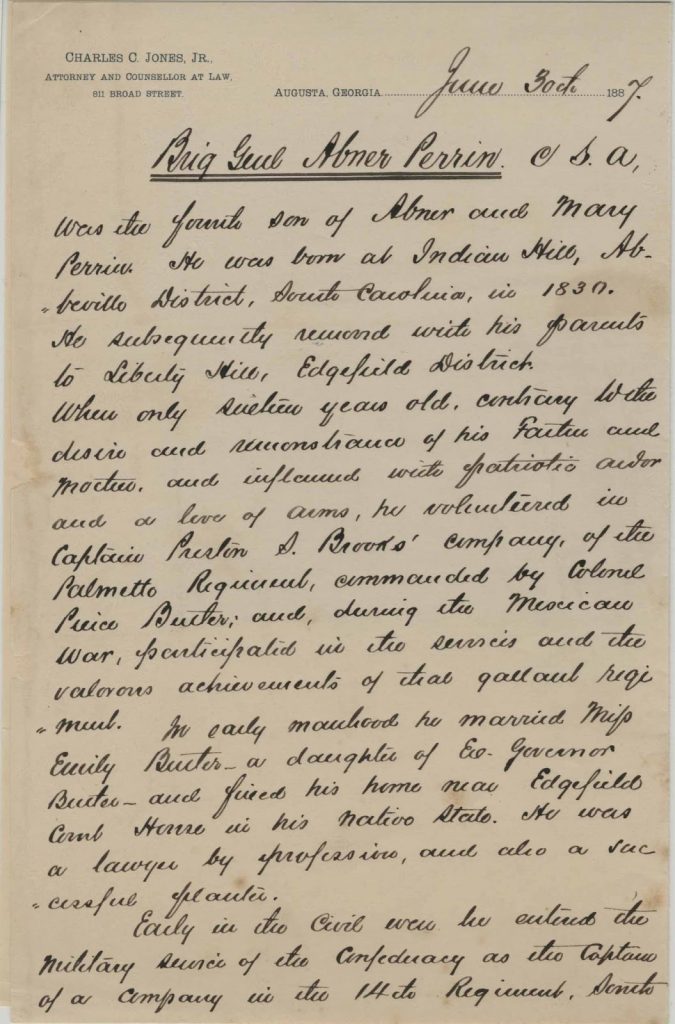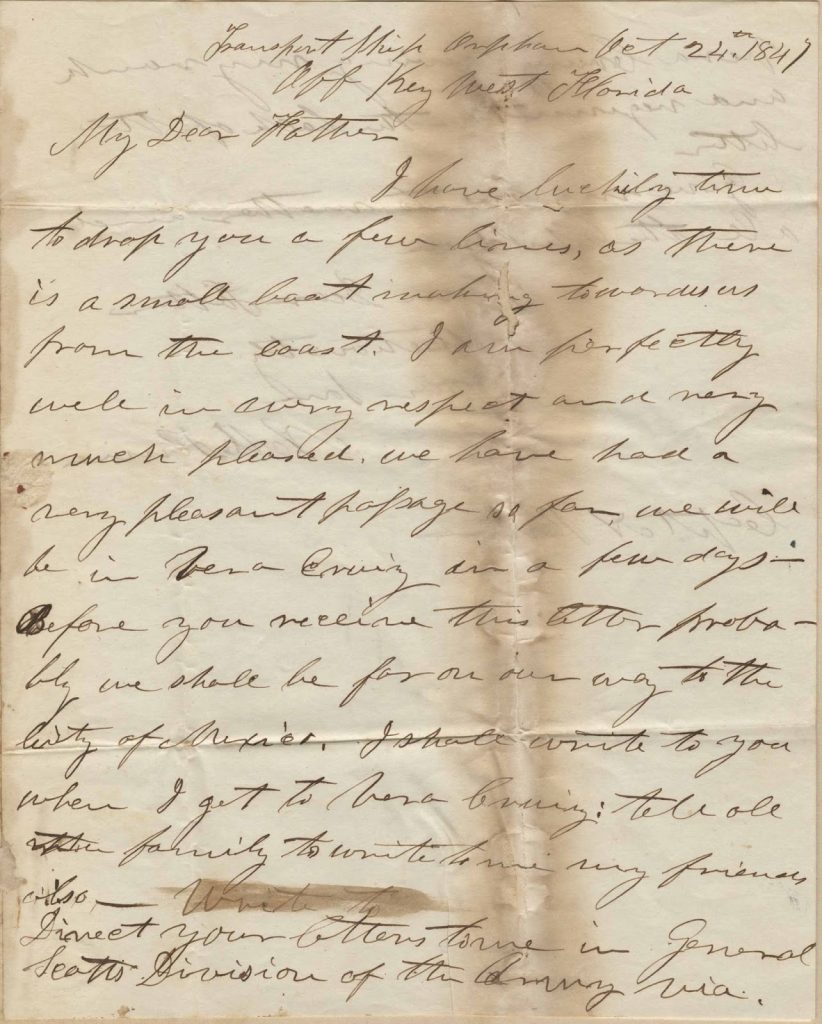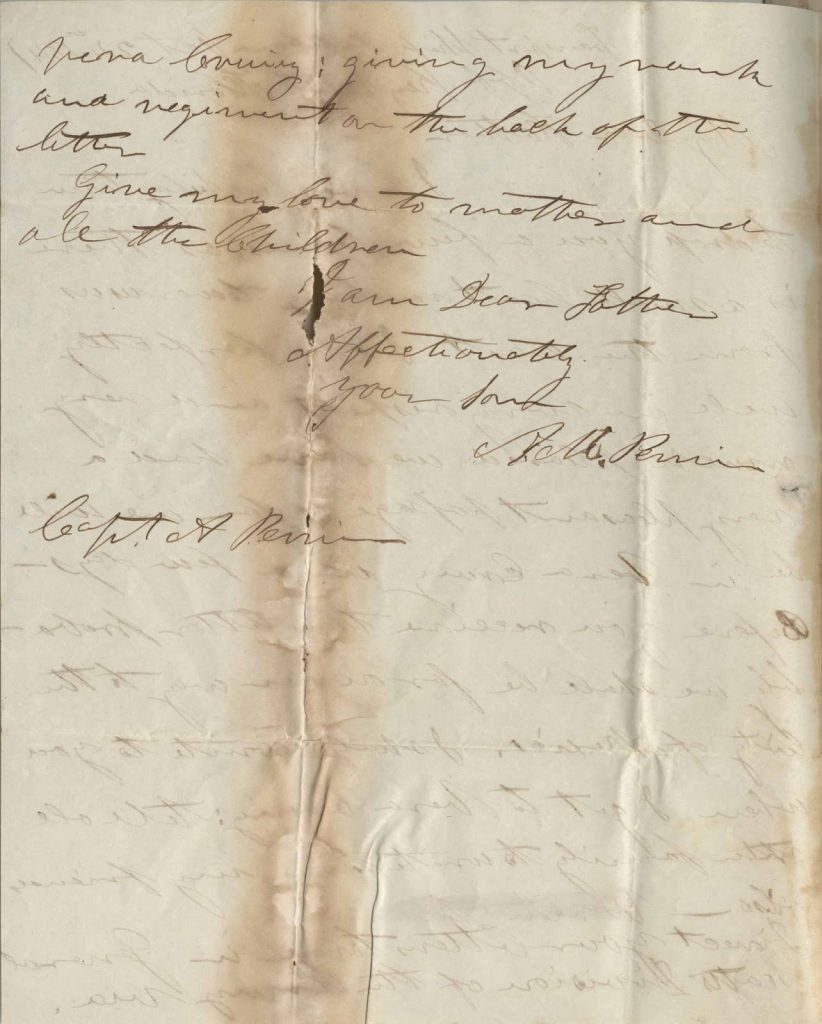One of the exhibition ideas we’ve considered here is “Wars You Forgot” and I suspect for many of us north-easterners, myself included, the Mexican War is not one we spend much time thinking about. But today marks the 170th anniversary of the U.S.’s declaration of war on Mexico; Congress voted to approve the war on May 13, 1846.
The basic issue in the war was territorial disputes in the southwest. In 1845 the U.S. had annexed Texas, whose independence Mexico had never recognized, there were disputes over the United State’s southern boundary line, and Mexico had also rejected expansionist President Polk’s requests to purchase California and New Mexico. Fighting lasted for two years until the Treaty of Guadalupe Hidalgo, signed on February 2, 1848. In the treaty the U.S. southern border was fixed at the Rio Grande and Mexico agreed to sell all its possessions above that line.

One of the Mexican War items in our collection is a letter written in 1847 by the young soldier Abner Perrin en route to Vera Cruz, Mexico. A later biographical sketch shown below (written in 1887, after the had served as a Brigadier General for the Confederacy) claims that:
When only sixteen years old, contrary to the desire and remonstrances of his Father and Mother and influenced with patriotic ardor and a love of arms, he volunteered in Captain Preston S. Brook’s company of the Palmetto Regiment, commanded by Colonel Pierce Butler; and during the Mexican War, participated in the services and the valorous achievements of that gallant regiment.

You can find out more about the Palmetto Regiment’s participation in some of the major battles of the War at the South Carolina Information Highway. [For those Rosen-fans for whom the name Pierce Butler rings a bell, the Pierce Butler who led the Palmetto Regiment (and died at the Battle of Churubusco) is NOT the Pierce Butler who married Fanny Kemble.]
Our letter predates all this action; from his ship, seventeen year old Abner tells his father:
I have luckily time to drop you a few lines as there is a small boat making towards us from the coast. I am perfectly well in every respect and very much pleased. We have had a very pleasant passage so far. We will be in Vera Cruz in a few days. Before you received this letter probably we shall be far on our way to the City of Mexico. I shall write to you when I get to Vera Cruz: tell all the family to write to me my friends also.


Although the Mexican War itself proved to be relatively short, its effects would be long lasting. Not only did it add a vast new swath of territory to the United States, but it also re-opened the tense question of how to balance slave and free areas. Some called for the new territories to be free, others wanted to extend the Missouri Compromise line west to the Pacific, while southerners called for popular sovereignty and pressed for a territorial vote to decide whether slavery would be legalized. Eventually the intricate Compromise of 1850 was passed, incorporating popular sovereignty among other measures to appease both parties. The Compromise quelled sectional tensions, but not for long, as in 1854, the
Kansas-Nebraska Act repealed the Missouri Compromise and established popular sovereignty in all the territories, leading to the rise of the Republican Party and setting off the Civil War.
